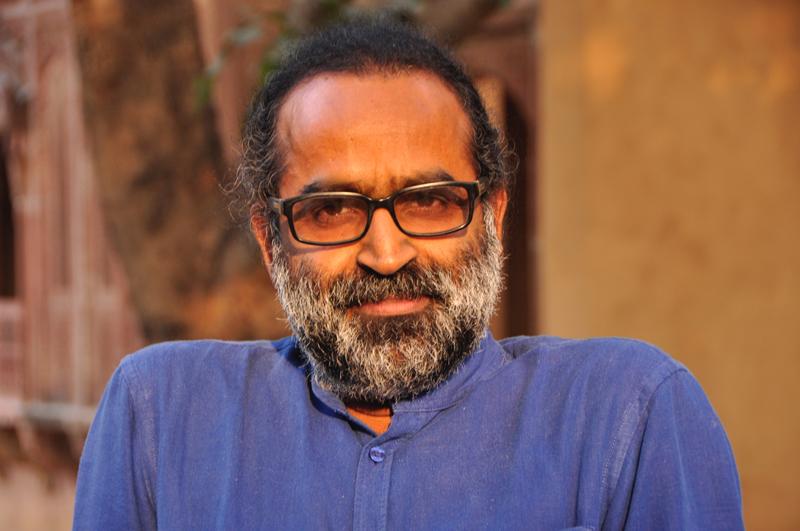 Image
Image
Measuring the social capital in your organisation
New Delhi: A new start up OrgLens has come up with a platform that helps companies understand and capitalize on the informal dynamics within the setup.
We have often heard the saying that 'the team that eats together stays together'. Team dynamics have a large part to play in organizational effectiveness. More bonded the employees and collaborative the teams, higher the productivity.
In every organization there is a formal hierarchy and reporting structure. But there also exist less structured relationships that contribute to the work getting done. But how do you map the informal networks and dynamics in a company?
New start-up OrgLens has created a platform (also called OrgLens) to unravel the informal networks within an organisation and go deep into the dynamics between people exploring trust in relationships. The OrgLens platform is designed to help leaders make effective decisions on strategy, execution, identification of talent, engagement, culture, etc. This is of immense importance to leaders in an organisation, especially when two entities are merging or a division is being hived off or there is poor employee morale or high attrition rates.
Organisation development veteran Santhosh Babu, founder of OrgLens says, “OrgLens helps understand the energy flow and acupressure points in organisations, particularly those with many degrees of complexity. Till now other than the organisation structure and chart we had no tool to visualise the complex adaptive organisation.”
World over, there is growing focus on social capital – the positive product of human interaction. Social capital is the network of relationships among people who live and work in a particular society, enabling that society to function effectively. According to corporate anthropologist Dr Karen Stephenson, who has done pioneering work in this field, while social network analysis is a field of human resources, it’s really a burgeoning field of mathematics that looks at the patterns of human connections inside companies and cultures.
Santhosh met Dr Karen Stephenson 11 years ago and underwent a training program conducted by her. Years later Santhosh thought about building an online platform to map and analyse informal networks within organisations. It was providential that he met with two AI experts and excited them to join him in creating OrgLens.
Along with two IIM Ranchi graduates and senior consultants with 16 years of technology consulting experience at Infosys and Deloitte they started building the platform three years ago. Two years ago OrgLens started testing the platform. Santhosh believes the OrgLens platform is now robust after working with half a dozen companies.
How does OrgLens work?
Typically, diagnostic tools around culture, engagement, diversity, leadership and climate survey are based on assumptions like Leadership means demonstrating certain defined behaviours, good culture means certain collective behaviours etc. OrgLens looks at what is real, what is happening on ground and how things are really developing. For example, engagement means how people connect with each other, engage with each other, who engages with whom etc. So, the tool has a potential of replacing lots of traditional assessments that organisations use.
Employees are asked seven questions to map their relationships within the organisation. This helps develop active Organisation Network Analysis. Using online responses, the algorithm-based OrgLens platform helps build visual relationship maps to generate insights. Similarly, using existing email and meeting invite data in a company OrgLens can generate passive Organisation Network Analysis to generate insights. Using online survey tool ONA can handle a large number of people. Cloud based OrgLens has the capacity to map thousands of people in organisations.
The use case of this tool believes Santhosh is strong for organisations that are in the midst of change interventions. Santhosh spent the last one year in adopting OrgLens in his own consulting firm OD Alternatives. He now plans to scout for partners engaged in Strategy, Org Structure, Org Change, Leadership Development consulting globally to integrate OrgLens platform as a vital part of their consulting tool kit.
In less than 100 days of launch, Org Lens has got six customers. "Each of them found a vivid view of how things work in their organisations very insightful. We aspire to work with at least 100 organisations using the OrgLens tool in India this year and touching 1000 organisations will be using this tool globally in three years," he says.
“Trust and reputation are now grounded not in traditional institutions and brands but in the social networks around us. Living in a world of distributed authority and trust has implications that must be understood if we are to craft actionable strategies for ourselves as leaders and for the complex organizations we manage. OrgLens’ solution will empower leaders to navigate this new world of distributed authority, trust, and reputation in a data-driven, rigorously analytical way,” concludes Prof John Burrows PhD, The University of Chicago, and Advisor, OrgLens.
Top Headlines
-
News
PM Modi expresses displeasure over NCERT judiciary chapter, wants accountability fixed
February 26, 2026
-
News
Former New Zealand PM Jacinda Ardern to relocate to Australia amid growing Kiwi exodus
February 26, 2026
-
News
Major aviation boost for Kashmir: Cabinet clears development of a new Civil Enclave at Srinagar International Airport
February 24, 2026
-
News
India urges all nationals to leave Iran 'by available means' as US-Iran tension grows
February 23, 2026
-
News
Ind.AI: Sovereignty, jobs, energy and the What If?
February 20, 2026
-
News
From car diplomacy to global strategy: Modi, Macron upgrade IndiaFrance ties
February 17, 2026
-
News
Seva Teerth: PM Modi inaugurates new PMO, announces these key decisions on first day
February 13, 2026
-
News
Hero of Operation Sindoor: IAF vice chief hails Rafale ahead of mega 114-jet deal
February 11, 2026
-
News
'Govt surrendered before Trump, sold Bharat Mata: Rahul Gandhi attacks Centre over IndiaUS trade deal
February 11, 2026
-
News
Painful times in my marriage: Melinda Gates reacts to Bill Gates being named in Epstein Files
February 05, 2026





